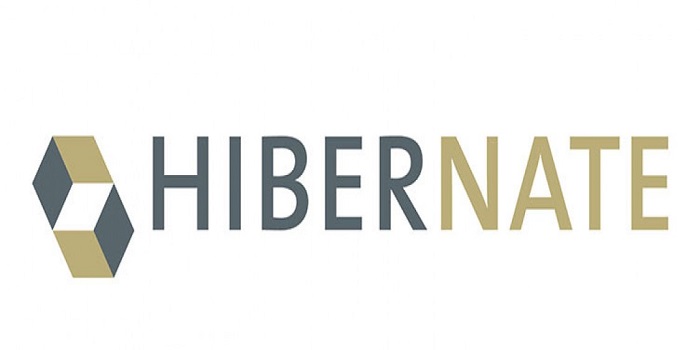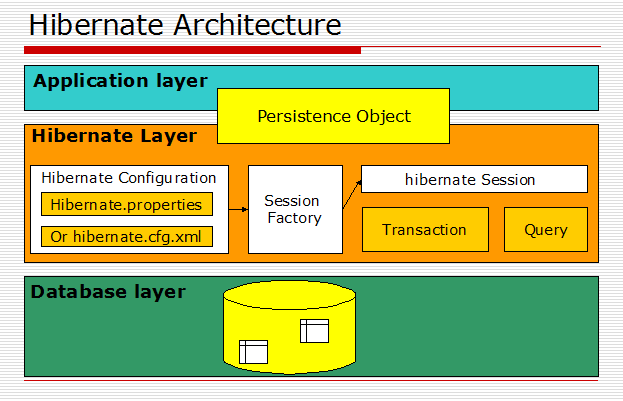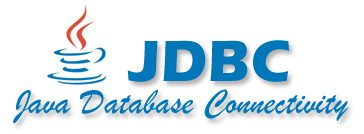
Hibernate vs JDBC: Which to Choose?
Are interested in Hibernate vs JDBC and want to know which to use in your project?
These are two awesome object-relational mapping tools, which both have their strengths and weaknesses.
Let's explore them in detail, but first, their introduction.
What is Hibernate?

Hibernate is the object-relational mapping (ORM) tool of choice for many developers using the Java ecosystem. One of the great things about Hibernate is that it's open-source and, therefore, free.
I, for one, have always been a believer in software that was developed by passionate individuals rather than paid drones who are just doing their job.
It provides a vital framework for mapping object-oriented programming concepts to an RDBMS. According to Wikipedia "Hibernate is able to deal with object-relational impedance mismatch problems by replacing direct, persistent database accesses with high-level object handling functions.”
Hibernate Architecture

In order to allow interaction with the database, Hibernate uses the following architecture:
Hibernate connects to the database and then modifies each Hibernate Query Language statement into database-specific statements. These are then mapped to Java objects which can then be accessed and used by the Java application.

Get a complimentary discovery call and a free ballpark estimate for your project
Trusted by 100x of startups and companies like
What is JDBC?

JDBC is short for Java Database Connectivity. It is an application programming interface that allows developers to create queries, access, and update a regional database using Structured Query Language (SQL).
JDBC Architecture
The aim of JDBC is to make an application's interaction with RDBMS as easy as possible. JDBC relies on two different architectures to allow access to the database:
- The driver connects to the database before executing SQL statements.
- JDBC driver uses the ODBC driver to execute the SQL query.
Hibernate vs JDBC: Where do you use them
You could be wondering where you can use JDBC vs Hibernate. We will now examine this aspect.
Several popular commercial and open-source databases have JDBC drivers, which allows you to use them with Java. A few examples are as follows:
- Oracle;
- Microsoft SQL Server;
- PostgreSQL;
- MariaDB;
- Derby.
How about Hibernate? Well, you can use it with many popular databases, e.g.:
- Oracle 11g and Oracle 11g RAC;
- DB2 9.7 or above;
- Microsoft SQL Server 2008;
- Sybase ASE 15.5 (jConnect 6.0);
- MySQL 5.1 and MySQL 5.5;
- PostgreSQL 8.4 and PostgreSQL 9.1;
- Apache Derby;
- HP NonStop SQL/MX 2.0;
This isn’t an exhaustive list. If you want more details, read “Which database is currently used in Spring and Hibernate?”.
Hibernate vs JDBC comparison
Fundamentally, the Hibernate vs. JDBC battle begins with deciding between Hibernate’s ORM and JDBC’s SQL approach.
Here are a few questions you should ask about your application requirements before you begin:
- What will drive your project development, application design, or data model?
- What level of cache performance do you require?
- Do you intend to do mainly simple or complex writing?
- Do you need scalability?
- Is automatic database versioning important?
- Is Relational Persistence for JAVA, Support for Query Language, or Transparent Persistence going to be an issue for your project?
With the answers to these questions in mind, let’s take a look at the pros and cons of Hibernate and JDBC.
Reasons to consider Hibernate over JDBC

One of the main reasons developers love Hibernate is that it is a Java standard. It is a JavaEE standard implementation which makes development much easier as guidelines are clear for all to follow.
Solves object-relational impedance mismatch problems
When a relational database is written in an object-oriented programming language, object-relational impedance mismatch issues can arise.
Differences in data types, structural and integrity differences, and manipulative and transactional differences, can all cause object-relational impedance mismatches.
Perform Automatic Object Mapping
Another difference between JDBC and Hibernate lies in the fact that the latter facilitates automatic object mapping when we write code. Otherwise known as "Transparent Persistence", this process allows Hibernate to map database tables to application objects during interaction with RDBMS.
However, JDBC requires programmers to manually write lines of code to deal with this problem. This is both time-consuming and costly.
Hibernate Query Language (HQL)
Like JDBC, Hibernate supports Structured Query Language (SQL). However, JDBC only supports SQL while Hibernate also supports the Hibernate Query Language (HQL) as well as Native SQL.
Hibernate Query Language (HQL) is similar to SQL such that it is an object-oriented query language. However, it doesn’t operate on tables like SQL but rather uses persistent objects and their properties.
In order to bridge the gap, HQL translates queries into SQL queries that can then initiate actions in the database.
Native SQL allows applications to use SQL statements with Hibernate meaning developers can choose between the two.
Differences between SQL and HQL – Summary:
- HQL is a combination of an Object-Oriented Programming System and a Relational database concept.
- SQL is entirely relational database model-based.
- HQL deals with objects and their properties.
- SQL operates on table data and the relationship between different tables.
The fact that Hibernate can operate using either SQL or HQL makes the better choice for most developers as it allows for more flexibility.
Database Independence
Since Hibernate allows for mapping between data tables and applications to be made through XML files, this makes it easy to migrate data to a new database if required.
Hibernate vs. JDBC Performance
While the process of accessing database information is vital. Equally important is how data is retained for repeated use. Caching is a key component of database performance as it helps applications reduce the time and resources spent on disk access.
1,200 top developers
us since 2016
Hibernate’s cache processes are set to the application workspace. After a query is made, relational tuples are moved to the cache to improve performance should the data be required for repeated use. This process, when coupled with Hibernate’s Automatic Object Mapping, makes life much easier for developers as well as increases performance.
JDBC contains no caching mechanism. This needs to be coded separately.
Connection pooling in Hibernate: Delivers a better performance
There are more reasons for Hibernate to deliver better performance. It supports “connection pooling”, which is a method to store database connections in the cache.
With the help of an external tool, Hibernate can reuse these connections from the cache. You will find it useful if your app tries to connect to the same database multiple times.
Wondering how you can improve the performance of your app using this advantage of Hibernate? Read “Configure a connection pool with Hibernate” for insights.
Hibernate vs JDBC: Minimizing your code changes
You might need to add a new column to a database table due to changes in design. Hibernate allows you to do this with minimal code changes.
What happens when you use JDBC? You need to do the following:
- Add a new field in your POJO class.
- Modify your JDBC method for the “Select” operation to include the new column.
- Change the JDBC method you use for the “Insert” operation to add a new value for the new column.
- Similarly, modify the JDBC method for the “Update” operation to update an existing value in the new column.
What do you do differently when using Hibernate? You do the following:
- Add your new field to your POJO class.
- Update the Hibernate XML mapping information so that you can include the new column.
As you can see, Hibernate lets you achieve your objective with less work. Read “15 reasons to choose Hibernate over JDBC” for more information.
Hibernate makes your code portable to other ORM frameworks
Hibernate supports Java Persistence Annotations (JPAs). The use of java persistence API lies in mapping Java code objects to database tables, columns, etc.
Hibernate supports JPAs like “@Entity”, “@Table”, “@Column”, etc., therefore, you can easily port your code to other ORM frameworks. Read “Hibernate annotations” to learn more about this.
Hibernate makes it easy to audit your changes to an entity
You would often like to track changes you make to a database entity. Hibernate features a library named “Envers”, which makes this easy.
If you want to audit a persistent class, then you need to annotate with “@Audited”. This creates a table for each “audited” entity, where you can view the history of changes you made to it. Read “Hibernate Envers - easy entity auditing” for more information.
Less Need to Repeat Code
Hibernate reduces the number of repeated lines of code required when compared to JDBC.
When inserting a record, for example, JDBC will require a programmer to write a statement for each column of a table. This can be quite labor-intensive if the application is working with a large number of columns.
Hibernate, on the other hand, only requires an object to be saved with “persist(Object);” and doesn’t require any additional parameters.
Scalability
Hibernate offers a good degree of scalability in any environment. This means that it can be used for all projects, from a small-scale app to one used by millions. Sadly, JDBC does not offer great scalability.
Automatic Versioning
Database versioning is another really important tool that helps prevent changes from being accidentally rolled back by other users. Hibernate allows for the recording of version types within an application.
Whenever data is updated or stored, a version type and time-stamp will be recorded along with the data. This helps prevent data overwrites from occurring as in the case when two users are trying to modify the same data set at the same time.
In this scenario, when the first user saves their changes, Hibernate will update the version field so that the second user will be prevented from saving their changes and in effect wipe the changes made by the first user.
JDBC is not able to perform such a check. This must again be coded by the developer.
Costs - Hibernate vs JDBC
Hibernate is open source and therefore is free for anyone to use. This benefits everyone from developers to large software development companies who don’t need to pay licensing fees.
As I have already touched on several times, JDBC requires developers to manually solve a lot of the tasks that Hibernate does automatically.
One such example is that JDBC requires developers to take care of mapping between Java objects and database tables while Hibernate uses object-table mapping to automate the process.
Coding a solution to this problem takes developers lots of time and effort. This in turn increases app development time as well as raises costs. It is for this reason that Hibernate can be said to be the most cost-effective solution.
Reasons to consider JDBC over Hibernate

Easy to Learn
The most obvious advantage of JDBC over Hibernate is that it is much easier to learn to use. Having to spend time learning how different software platforms function can be a real nightmare for programmers.
If a developer doesn’t understand Hibernate’s internal workings and database design, then they are not going to be able to write good code.
A simpler solution
Many developers consider Hibernate better suited for more complex applications. If an application is only going to use a straightforward database that won’t need to be migrated, then JDBC is considered the better option.
Likewise, if the application only requires data to be stored in database tables and doesn’t require objects to be mapped to two or more table versions, then JDBC is considered to be much better to use.
So in a nutshell, if the application database requirements are straightforward then JDBC is the better choice.
Faster development performance and tests
Hibernate’s startup performance is not the best. As it loads up, pre-caching means that it takes roughly 10 to 15 seconds for a small-sized application to load. Mapping to and from Object-to-tables also takes some time.
While this is not exactly a vast amount of time, it can add up for sophisticated projects and more than anything be frustrating. JDBC doesn’t suffer from the same lag when it comes to startup and provided tables are SQL based, it is able to access/record data quickly.
Unlike hibernate, JDBC supports some types of queries.
JDBC is able to insert multiple objects (persistent data) at once into the same table as part of one single query. If a developer using Hibernate wants to incorporate this function into their application, they must code it separately.
Great Support - Hibernate vs JDBC
Last but not least is technical support. JDBC is developed under the wing of the Oracle Corporation. This means that developers are able to access dedicated customer service teams who are able to help them with any query that they may have.
This support also means that there is a lot of literature online for those who need it. While it is possible for programmers to get information on Hibernate issues, they more than likely will have to post questions to a forum and wait for a reply.
My Final Thoughts
While researching this article, it became apparent just how much support there was among developers for Hibernate. The fact that Hibernate is open-source and developed by passionate developers might explain part of this preference.
However, after reading this article, it should be clear that Hibernate has a number of clear advantages too. Anyone developing more complex applications that require more than straightforward database interactions would be well advised to use Hibernate.
JDBC is still a great tool though, particularly if developers are working with smaller, more straightforward applications. In the end, which one you choose is really a matter of preference and whether your developers have a good background in Hibernate.
If you require skilled Java programming language developers for your next software application project, DevTeam.Space can help you via its field-expert software developers community. Write to us your initial project specifications, and one of our account managers will get back to you for more details.
Frequently Asked Questions on Hibernate vs JDBC
Is there a big difference between JDBC vs Hibernate performance?
JDBC gives better performance. For more on this, read our article.
The best place to start for a simple JDBC vs Hibernate example tutorial is to read this article. You can also find a series of videos by developers on YouTube.
While JDBC offers better performance, there are a number of advantages to using Hibernate. Read this article to find out more.


